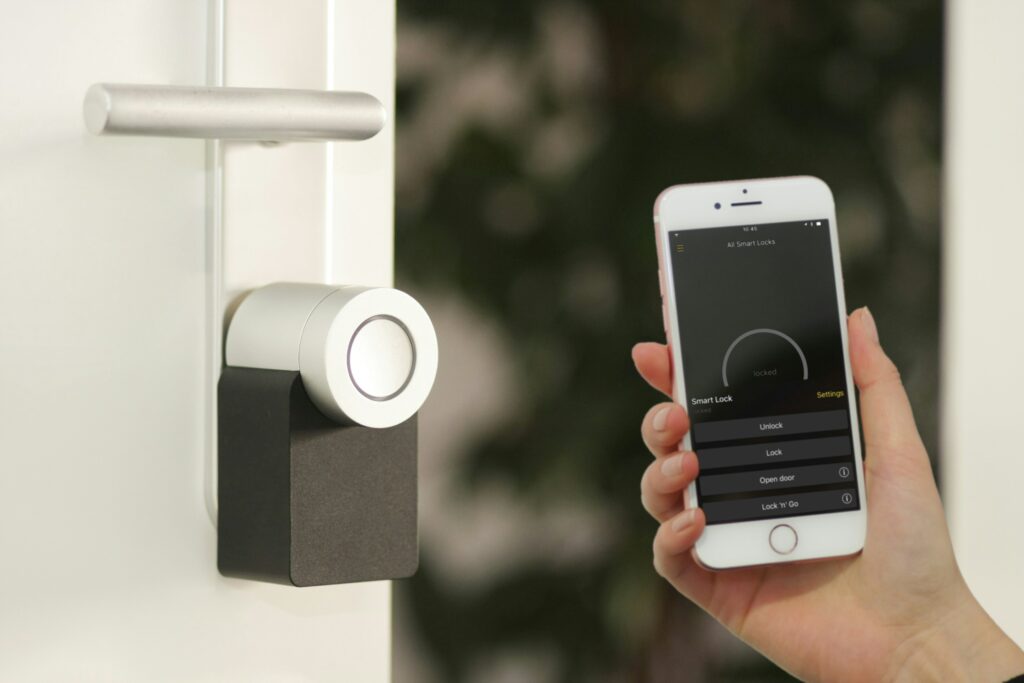Smartphone room keys enable attendees to bypass check-in lines at hotels
Smartphone hotel room keys are a relatively new technology that is becoming increasingly popular. They offer a number of advantages over traditional plastic key cards, including:
Convenience: For groups hotels that use smartphone room keys usually also offer online check-in which can save attendees (especially at busy hotels) a lot of time. They can use their smartphones to unlock their rooms without having to carry around a separate key card. This is especially convenient for guests who are likely to misplace their keys or who travel frequently.
Security: Smartphone hotel room keys are encrypted, which makes them more difficult to hack than traditional key cards. Additionally, most hotels require guests to use a PIN or fingerprint to unlock their rooms with their smartphones, which adds an extra layer of security.
Efficiency: Smartphone hotel room keys can help hotels to streamline their check-in and check-out processes. Guests can check in and receive their room keys electronically, which can save time for both guests and staff.
Customization: Some hotels allow guests to use their smartphones to control other aspects of their stay, such as the room temperature or lighting.
However, there are also a few potential drawbacks to using smartphone hotel room keys:
Not all hotels offer them: Not all hotels have adopted smartphone hotel room key technology yet.
Requires a smartphone: Guests need to have a smartphone with a compatible app in order to use this technology.
Battery life: If a guest’s phone battery dies, they will not be able to unlock their room.
Overall, smartphone hotel room keys are a convenient and secure way for guests to access their rooms.
As the technology becomes more widespread, it is likely that more and more hotels will adopt it.
It’s difficult to give an exact number of hotel chains offering smartphone room keys because the adoption rate is constantly increasing and individual hotels within larger chains may not all offer it yet.
Most major hotel chains have at least partially implemented smartphone room keys. This includes giants like:
Marriott: Available in almost all brands like Marriott, Sheraton, Courtyard by Marriott, Fairfield Inn & Suites by Marriott, etc. the Marriott Bonvoy portfolio already offer a wide array of digital solutions and programs that take the hotel experience a step beyond, such as the option to check in through the Marriott Bonvoy app or at Marriott.com. At more than 6,300 hotels globally, enabling them to skip a stop at the front desk, head straight to their room upon arrival at the property, and use their smartphone as a guest room key.
Hilton: Available in over 5,400 hotels across diverse brands like Hilton, Conrad, Waldorf Astoria, Canopy by Hilton, etc.
IHG Hotels & Resorts: Available in various brands like InterContinental Hotels & Resorts, Holiday Inn, Holiday Inn Express, Kimpton Hotels & Restaurants, etc.
AccorHotels: Available in several brands like Sofitel, Pullman, MGallery, Novotel, Mercure, Ibis, etc.
Many independent hotels and boutique chains also offer smartphone room keys, driven by the increasing guest demand for convenience and efficiency. So, the landscape is continuously evolving.
Here are some resources to help you check if a specific hotel offers smartphone room keys:
Hotel website or app: Look for information about mobile check-in or digital keys on the hotel’s website or app.
Third-party booking platforms: Many booking platforms like Booking.com and Expedia also highlight if a hotel offers smartphone room keys.
Contact the hotel directly: Call or email the hotel to inquire about their key access options.
Remember, even within a chain, adoption might vary, so checking directly with the specific hotel you’re interested in is always best.
Any thoughts, opinions, or news? Please share them with me at vince@meetingsevents.com.





